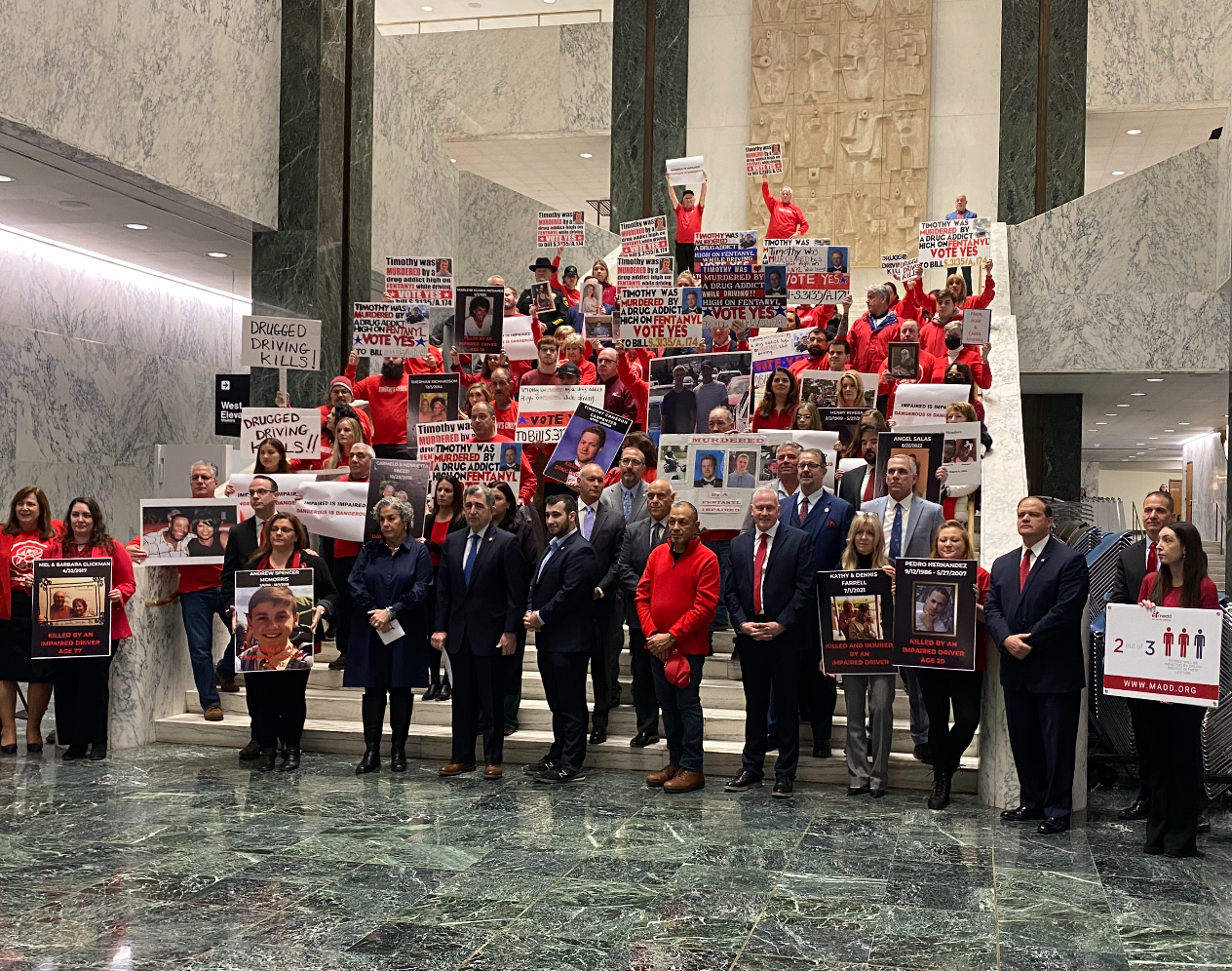Brown: Protecting Motorists and Pedestrians from Drivers Impaired by Drugs is a Top Priority
Assemblyman Keith Brown (R,C-Northport) attended a rally in Albany earlier today to speak out against drugged driving and support the call for legislation that will help keep everyone safe when out on the road. He was joined by assemblymembers on both sides of the aisle, local leaders and families who have been affected by deadly accidents involving those who were driving while impaired by drugs and innocent victims who were simply in the wrong place at the wrong time.
“When we use public roadways, we entrust other motorists to be responsible enough not to make the dangerous decision to drive while in an altered state due to drugs—unfortunately, as is similar to driving while intoxicated by alcohol, this is not always the case,” said Brown. “In 2022, the rising number of roadway fatalities was described by U.S. Transportation Secretary Pete Buttigieg as a national crisis. In 2021, the National Highway Traffic Safety Administration (NHTSA) reported that nationally, 56% of drivers involved in serious injury and fatal crashes tested positive for at least one drug. With the legalization of adult-use cannabis and the continued problems associated with ‘synthetic drugs’ in recent years, New York's laws regarding driving under the influence of drugs need to be updated.”
In order to help keep roadways safer for all, Brown fully supports a significant drugged driving bill (A.00174) introduced by his fellow assemblymembers. This bill aims to update and modernize New York’s laws regarding driving while impaired by drugs, including:
- Amending the definition of “drug” in the Vehicle and Traffic Law to include any substance or combination of substances that impair, to any extent, physical or mental abilities;
- Statutorily defining “impaired” and “intoxication” to prevent uncertainty surrounding their meaning. This legislation will re-establish “impaired” and “intoxication” as separate standards;
- Updating New York law regarding field testing for drugged driving to include the use of oral/bodily fluids;
- Providing that refusing to submit to a field test is a traffic infraction and refusing a Drug Recognition Expert exam will result in license revocation;
- Expanding the circumstances where a court can order a compulsory chemical test in a suspected drunk or drugged driving crash; and
- Updating the law regarding the suspension of licenses pending prosecution by adding drugged drivers with charges supported by testing or admissions.

